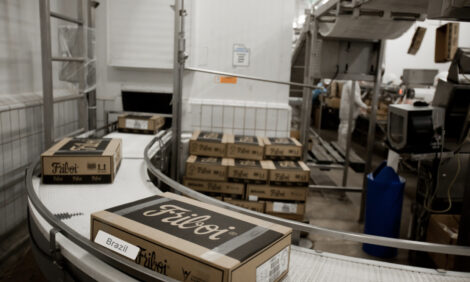



Meeting Challenge of Antibiotic Use
ANALYSIS - The changing face of the livestock sector in Europe has brought with it different challenges over potential problems over residues in meat, dairy and food products, writes Chris Harris.This week the European Parliament is discussing a draft resolution on antibiotic use.
In general, in the more developed agricultural nations in the EU, such as the UK, Germany and the Netherlands, food is being produced with larger herds and flocks and by fewer farmers. Fewer producers are producing more and more of the food and in the UK, some estimates have 20 per cent of the producers producing 80 per cent of the meat, milk and eggs that are consumed.
However, the farming sector is having to face up to continued price volatility and the challenges of relationships within the supply chain. The food production sector is also changing to meet new global changing eating habits, such as those in India and China and, in Europe, reforms to economic policies are also having a significant impact on what people eat.
The pressures on the agricultural sector have to a great extent been forced on it initially by government pressure and then by consumer demand for cheap food. The production of cheap food is now becoming harder if not impossible to sustain and it is placing increasing pressure on food security.
Speaking at a recent open meeting of the UK Veterinary Residues Committee, Yorkshire-based vet, Jonathan Statham, said that the changing dynamics of food production has meant that an increasing amount that is consumed in the UK is imported.
The changes in the UK have seen the numbers of dairy cattle halved over the last half century. while the numbers of herds are also dropping. The numbers of pig herds have also dropped while the numbers in those herds have increased.
The fall in numbers has arisen because more farmers are leaving the sector, forced out by rising input costs.
Dr Statham said that the modern livestock farmer has had to strike a balance between quality breeding and farm management to be successful and to achieve this, farmers have had to improve their management ability and their farming skills.
To this end, the recognition of good practices in farm assurance schemes has become an integral part of production and the improvement of management skills.
"Farm assurance gives consumers the confidence that what they buy is what they expect," said Dr Statham.
"There is a very high uptake in such schemes, but for the consumer price is still the main driver."
Part of the assurances and guarantees that are offered through farm assurance schemes cover the use of veterinary medicines.
In Europe, the European Commission has recommended a holistic approach to the threat of antimicrobial resistance with a plan that aims to mitigate the development of antimicrobial resistance (AMR) through appropriate use of antimicrobials and by promoting microbial diagnosis; preventing microbial infections; developing effective antimicrobials; working with international partners and using research and innovation to combat AMR.
In the UK, this approach has been backed by a scheme developed by an alliance of organisations, including the National Farmers Union and RUMA (the Responsible Use of Medicines in Agriculture).
However, the approach and the monitoring that has been endorsed by the EC and in the UK is not a global approach, and this has raised concerns over different standards and levels of protection to consumers.
As the food chain strives to keep prices down, more and more cheap imports are being traded around the world and often between countries that have different standards and residue levels.
Cheap imports could be seen as not only a threat to domestically produced products but also to the health and welfare of consumers if high biosecurity standards are not met.
Dr Statham said that there is a need for appropriate measures to control the use of veterinary medicines to ensure they are used correctly and responsibly to protect consumer health and to meet the challenges of new zoonotic diseases.
He said that the use of medicines on farms has to be directed by a vet, particularly at the point of use.
He said that medicines have to complement good practice on farms and they have to be used appropriately and not as a prop.
There also have to be controls in place that will ensure correct withdrawal periods before slaughter of animals to ensure that the medicines are not contaminating food that is part of the human food chain.
And medicines should not be a tool to hide poor management.
During the EuroTier exhibition in Hanover, the use of antibiotics in agriculture again came under sharp focus.
Dr Hans-Joachim Götz, President of the Federal Association of Practising Veterinarians (Bundesverband Praktizierender Tierärzte e.V.; bpt) said that the law over antibiotic use "needs to make sense".
The German veterinary organisation said that there needs to be monitoring and benchmarking of future antibiotic use in order to reduce the volume used in food animals, as well as the separation of drug sales from prescription and administration.
But Professor Manfred Kietzmann of the veterinary institute on Hanover reiterated the assertion that Dr Statham made earlier in the UK that as long as retailers and consumers apply such pressure to keep food prices low, farmers and their veterinarians have little choice but to take the cheapest option in their decision-making on all aspects of production - including the use of antibiotics - consistent with the law.
Europe now awaits the decision of the European Parliament on antibiotic use in farming, as does Codex Alimentarius and other global organisation.









